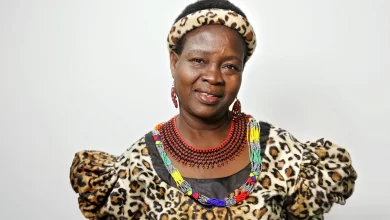‘Depoliticise Kabaza business’
The Road Safety Alert Foundation (Rosaf) says political will is key to bringing sanity in Kabaza business. According Rosaf’s executive director, Joel Jere, once the Kabaza business is depoliticised, sanity will reign and the economy stands to benefit. Jere spoke to our reporter Suzgo Chitete.

You have launched an ambitious campaign to sanitise Kabaza operations in Malawi. You have indicated that unlicensed motorcycles, those without helmets and unlicensed operators should be out of business. How do you intend to achieve this?
We plan to run this campaign through coordinated, community-level action, partnerships, and public engagement. We will deploy trained volunteers in every district, working hand-in-hand with community-level police officers.
Together, they will approach Kabaza riders at their ranks, hold safety talks, distribute reflective gear, and provide information on licensing and road rules. We are also partnering with Kabaza associations such as Macokasa to help enforce safety practices and compliance at rank level. By working with Kabaza training schools, we have reduced the cost of a licencee to K100 000. We will facilitate sign-ups and training drives in communities so that riders can register locally and easily. We are also partnering with the Department of Road Traffic and Safety Services (DRTSS) to use mobile system at the district level, making licensing and roadworthiness checks more accessible.
We have generally observed poor law enforcement on Kabaza: What are the issues?
One of the core issues was that when Kabaza operations began, there were no clear policies or regulatory frameworks in place to govern them. As a result, enforcement became difficult and inconsistent. Moreover, the lack of strong political will in the early stages made it harder for enforcement agencies to act decisively. At times, officers feared political interference, which limited their ability to implement the law fully and fairly. However, this situation is changing. We recall the President, during the launch of Lions Hospital, expressing concern about the Kabaza sector and stressing that operators should be supported to solve their challenges, but must operate within the laws of Malawi. This was a clear signal that political leaders are now supporting proper enforcement and that law enforcers should feel empowered to act without fear of political pressure. As Rosaf, we follow the Safe System Approach, which emphasises that road safety is a shared responsibility. We believe that multi-sector collaboration is key—law enforcement, government, civil society, and Kabaza associations must work together to ensure sustainable solutions. In short, the issues of poor enforcement stemmed from policy gaps, limited political backing, and weak coordination. But with the current momentum, the environment is right for effective enforcement and Rosaf stands ready to support all efforts that promote safe and legal operations in the Kabaza sector.
Any suggestions on how to depoliticise kabaza operations in the interest of the economy?
One of the major challenges has been political interference, which weakens the ability of the police and local authorities to enforce regulations. There is a need to give law enforcers a clear mandate to operate without political pressure. The Kabaza sector must be removed from informal and politically vulnerable structures to formal, policy-driven systems. This will reduce space for political manipulation and improve transparency. Economic support to Kabaza operators or owners must be tied to compliance, not political affiliation. Financial empowerment programs such as Neef [National Ecconomic Empowerement Fund] should be offered based on merit and compliance with road safety laws, not political connections. In short, depoliticising kabaza operations will require political will, institutional support, and community engagement.
Do you think government has provided a conducive environment for the growth of this business?
While the government has made positive strides, the policy environment remains partially supportive and there is still room for improvement to fully unlock the potential of this growing industry. Government, through partnerships such as the memorandum of understanding (MoU) between city councils and Macokasa is the right way to go. These agreements will help streamline registration, regulation, and coordination at local levels—paving the way for safer and more formalised operations. There are discussions around using institutions like Neef in collaboration with Macokasa to support Kabaza operators financially including possibly covering license fees. If implemented, this would be a transformational move, enabling more riders to comply with legal requirements.





